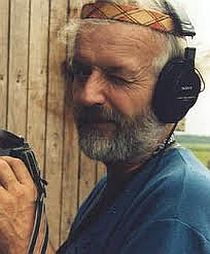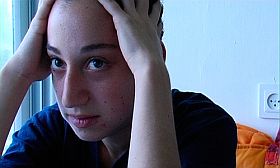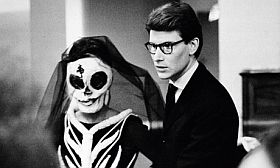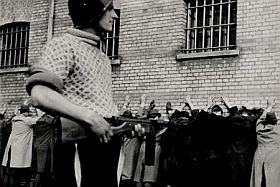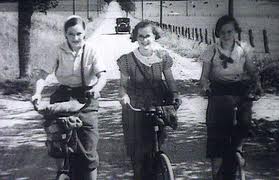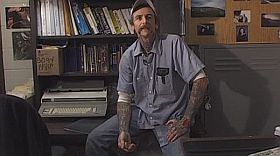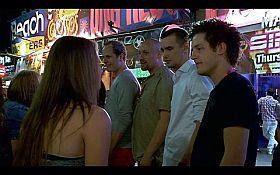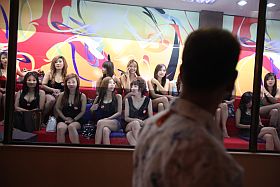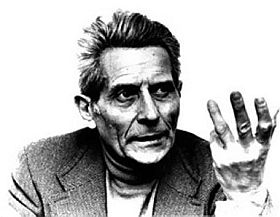


Jean Rouch Tribute
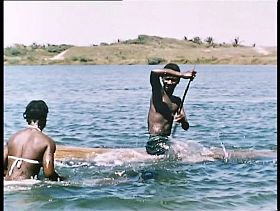
Icarus Films in New York has a strong, high quality catalogue, including several works by Chris Marker, who died end of July this year. This week the company pulished the good news that it has acquired North American distribution rights to six films by “legendary French filmmaker and ethnographer Jean Rouch”.
The press release, that gives a gives a first intro to the filmmaker goes like this:
A founder of cinéma vérité, Rouch is widely recognized as one of the world’s most significant documentary filmmakers, but much of his filmography has long been unavailable in the United States. The six titles Icarus Films has acquired number among his most highly regarded productions: two shorts, LES MAÎTRES FOUS (1955) and MAMMY WATER (1956), and four features: MOI, UN NOIR (1957), THE LION HUNTERS (LE CHASSE AU LION A L’ARC) (1965), JAGUAR (1967), and LITTLE BY LITTLE (PETIT À PETIT) (1969).
Between 1946, when he made his first film in Niger, and his death in 2004, Rouch produced more than 100 films, most of them on African subjects. From his position as a researcher at France’s National Center for Scientific Research (CNRS), he became “one of the most creative forces in ethnographic film and one of its most vigorous challengers.” (Pat Aufderheide, Documentary Film: A Very Short Introduction) “No one”, Gilles Deleuze said of Rouch, “has done so much…to break with a cinema of ethnology.”
The period in which Rouch produced the six films Icarus has acquired represents the most sustained flourishing of his practice of “shared anthropology,” a process of collaboration with his subjects that he described as a “type of participatory research,” which he said, “appears to me to be the only morally and scientifically feasible anthropological attitude today.”
Among this group are Rouch’s two best-known films: LES MAÎTRES FOUS,
“an anthropological classic…widely considered to be one of the most profound explorations of an African view of the colonial world” (Senses of Cinema), and MOI, UN NOIR (photo), winner of the 1958 Prix Louis Delluc, and regarded by Jean-Luc Godard as “the best French film since the liberation.” All of Rouch’s work of this era exerted a profound influence on the young filmmakers of the French New Wave; in 1968, Jacques Rivette observed that “Rouch is the force behind all French cinema of the past ten years.”
Icarus Films is producing new subtitles for three of the films, and they will be released to theatrical and non-theatrical audiences this fall. The films will appear in New York this fall as part of a two-part, 40-film Rouch retrospective held at French Institute Alliance Française and Anthology Film Archives between November 7-27, which will be accompanied by a one-day symposium at New York University. The retrospective will be followed by a North American tour, stopping at venues including The National Gallery of Art in Washington, D.C., and the Pacific Cinematheque in Vancouver.
The films are:
LES MAÎTRES FOUS
1955/ color/ 26 minutes
Rouch’s classic and controversial depiction of a spectacular trance ritual of Accra’s Hauka religious sect, made up mostly of migrant workers from rural Niger, that also constitutes a theatrical protest against West Africa’s colonial masters.
MAMMY WATER
1956/ color/ 19 minutes
Along the coast of Ghana, near the old Portuguese slave forts, children play in the ocean and fisherman perform ceremonies to placate the sea gods whose favor determines their catch.
MOI, UN NOIR
1957/ color/ 72 minutes
In Rouch’s landmark ethnofiction, three Nigerien migrant workers in Treichville, outside Abidjan, Côte d’Ivoire, describe their lives in the city, the difficulties of urbanization, and their dreams, playfully re-enacting their daily routines for the camera, and taking on the names of American movie stars.
THE LION HUNTERS (LE CHASSE AU LION À L’ARC)
1965/ color/ 80 minutes
Recorded over the course of seven years on the border between Niger and Mali, THE LION HUNTERS documents the traditional lion hunt of the Songhay people, taking it as a key to understanding the region’s social organization.
JAGUAR
1967/ color/ 89 minutes
Three young men from Niger travel to Accra to work. Rouch once again collaborates with his subjects, who narrate the film together, recreating dialogue, explaining their motivations, and infusing the documentary footage with fantasy.
LITTLE BY LITTLE (PETIT À PETIT)
1969/ color/ 92 minutes
In LITTLE BY LITTLE, viewers rejoin the three men from JAGUAR, now running an import-export company in Niamey. Business brings them to Paris, where they perform a reverse anthropology of Rouch’s own culture.
http://icarusfilms.com/
